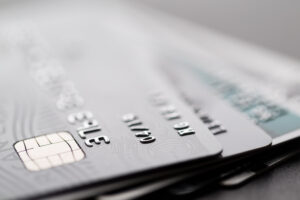What Impacts Your Credit Score and How To Repair it

Brief Explanation Of Credit Scores
Credit scores are one of the most important pieces of financial information for consumers. A good credit score can mean the difference between getting a loan and being denied, or getting a lower interest rate on a loan. A bad credit score can cost you thousands of dollars in interest payments over the life of a loan. Here is a brief explanation of how credit scores work and why they are so important.
Credit Scores Are Calculated Using Information From Your Credit Report
 A credit score is a number that reflects the creditworthiness of an individual. It is used by lenders to determine whether an individual is a good candidate for a loan. A high credit score means that the individual is a low-risk borrower, while a low credit score means that the individual is a high-risk borrower.
A credit score is a number that reflects the creditworthiness of an individual. It is used by lenders to determine whether an individual is a good candidate for a loan. A high credit score means that the individual is a low-risk borrower, while a low credit score means that the individual is a high-risk borrower.
Credit scores are calculated using information from an individual’s credit report. The most important factor in calculating a credit score is the payment history, which makes up 35% of the score. Other factors include the amount of debt owed (30%), length of credit history (15%), types of credit used (10%), and new credit inquiries (10%).
An individual’s credit score can range from 300 to 850. The higher the score, the better. A score of 700 or above is considered good, while a score of 800 or above is considered excellent.

Factors That Could Impact Your Credit Score:
There are many factors that could impact your credit score. Here are a few:
1. Payment History: This is the most important factor in your credit score. It includes whether you’ve made your payments on time, and if you’ve had any late payments or collections.
2. Credit Utilization: This is the amount of debt you have compared to your credit limit. It’s important to keep your utilization low, because it shows that you’re using less of your available credit and are therefore less risky to lenders.
3. Length of Credit History: A longer credit history will generally result in a higher score, because it shows that you’re an experienced borrower who has managed their debt responsibly over time.
4. Types of Credit: This refers to the different types of accounts in your credit report, such as revolving (e.g.
Late Or Missed Payments
 If you’re behind on your bills, you’re not alone. According to a report by the Consumer Financial Protection Bureau, more than one in 10 Americans have at least one account in collections.
If you’re behind on your bills, you’re not alone. According to a report by the Consumer Financial Protection Bureau, more than one in 10 Americans have at least one account in collections.
While it may be tempting to just ignore your late or missed payments, doing so can have serious consequences. Not only will you be charged late fees and interest, but your credit score will take a hit. This can make it difficult to get approved for new lines of credit, including loans and credit cards.
If you’re having trouble keeping up with your payments, reach out to your creditors as soon as possible. Many are willing to work with you to create a repayment plan that fits your budget. And if you’re struggling with debt, there are many resources available to help you get back on track.
Maxing Out Credit Cards
 There are a few things to keep in mind when maxing out credit cards. First, make sure that you have a plan to pay off the balance. Second, keep track of your spending so that you do not overspend. Third, be aware of the interest rates on your credit cards.
There are a few things to keep in mind when maxing out credit cards. First, make sure that you have a plan to pay off the balance. Second, keep track of your spending so that you do not overspend. Third, be aware of the interest rates on your credit cards.
If you have a plan to pay off the balance of your credit card, then maxing out your credit card can be a good way to improve your credit score. This is because when you max out your credit card, it shows that you are using all of the available credit that you have. Therefore, by paying off the balance in full each month, you are demonstrating responsible financial management skills.
However, if you do not have a plan to pay off the balance of your credit card, then maxing out your credit card can be a very bad idea.

Having A Lot Of Debt
Debt is a common issue that many people face. It can be difficult to deal with, but there are ways to manage it.
There are a few things to keep in mind if you find yourself having a lot of debt. First, don’t panic. It might seem like a daunting task, but it is possible to get out of debt. Second, start by creating a budget. This will help you see where your money is going and where you can cut back. Third, make a plan. Once you have a budget, you can start making a plan to pay off your debt. This might include paying more than the minimum payment each month or consolidating your debts into one loan.
If you are struggling with debt, remember that you are not alone. There are resources available to help you get out of debt and manage your finances.
Foreclosures Or Bankruptcies
 Foreclosures and bankruptcies are both financial terms that are often used interchangeably, but they actually have different meanings. A foreclosure is a legal process in which a lender attempts to recover the balance of a loan from a borrower who has defaulted on their payments. A bankruptcy is a legal process that allows a debtor to have some or all of their debts discharged.
Foreclosures and bankruptcies are both financial terms that are often used interchangeably, but they actually have different meanings. A foreclosure is a legal process in which a lender attempts to recover the balance of a loan from a borrower who has defaulted on their payments. A bankruptcy is a legal process that allows a debtor to have some or all of their debts discharged.
While both foreclosures and bankruptcies can damage your credit score, a foreclosure will typically stay on your credit report for seven years, while a bankruptcy can stay on your credit report for up to 10 years. In addition, foreclosures can result in the loss of your home, while bankruptcies may allow you to keep your home if you’re able to make the required payments.
How To Repair Any Damage:
Assuming the reader knows nothing about repairing damage, this article will provide a brief overview of the steps necessary to complete the task. First, it is important to identify the type of damage. Second, gather the necessary materials. Third, follow the repair instructions specific to the damage. Finally, check for any additional damage and repeat the process as needed. By following these steps, anyone can repair any damage.

Make All Payments On Time From Now On
If you’re like most people, you’re probably not used to making all of your payments on time. Maybe you’ve been making late payments for years, or maybe you’ve only recently started having trouble paying your bills on time. Either way, it’s important to make all of your payments on time from now on.
There are a few things you can do to make sure you make all of your payments on time from now on. First, set up a budget and stick to it. This will help you keep track of your expenses and make sure you have enough money to pay your bills each month. Second, make a list of all of your bills and when they’re due. This will help you stay organized and ensure that you don’t miss any payments. Finally, set up automatic payments for all of your bills.
Try To Pay Off As Much Debt As Possible
Debt can be a major financial burden, and it’s important to try to pay off as much as possible. Here are a few tips to help you get started:
1. Make a budget and stick to it. This will help you see where your money is going and where you can cut back in order to make more room for debt payments.
2. Attack the debt with the highest interest rate first. This will save you money in the long run because you’ll be paying less in interest overall.
3. Consider transferring your debt to a lower-interest credit card. This can help you save on interest and speed up the process of paying off your debt.
4. Make extra payments whenever possible.
Don't Close Any Old Credit Accounts
If you’re considering closing an old credit account, think again. There are several reasons why it’s not a good idea to close an account, even if you no longer use it.
For one, closing an account can shorten your credit history, which can make it harder to get approved for new loans or lines of credit in the future. Additionally, closing an account can also increase your credit utilization ratio, which is the amount of debt you have compared to your overall credit limit. A high credit utilization ratio can hurt your credit score.
So what should you do with old, unused credit accounts? Just leave them open and inactive. That way, you’ll keep a longer credit history and a lower credit utilization ratio – both of which will help improve your chances of getting approved for new loans down the road.

Consider Talking To A Credit Counseling Or Credit Repair Agency
If you’re struggling with credit card debt, you might be considering talking to a credit counseling or credit repair agency. Here’s what you need to know about these services and how they can help you get back on track.
Credit counseling agencies can help you develop a plan to pay off your debt and improve your financial habits. They also offer educational resources to help you understand and manage your finances. Credit repair agencies can help you dispute inaccuracies on your credit report and negotiate with creditors to remove negative items.
Both types of agencies can be helpful if you’re struggling with credit card debt. But it’s important to do your research before choosing one, as not all agencies are created equal. Be sure to check out reviews and compare pricing before making a decision.
Reiterate Main Points
 In conclusion, it is important to reiterate the main points of the article. The article discussed the importance of XYZ and how it can help improve your life. XYZ is a great way to improve your health and well-being, and it is something that everyone should consider doing.
In conclusion, it is important to reiterate the main points of the article. The article discussed the importance of XYZ and how it can help improve your life. XYZ is a great way to improve your health and well-being, and it is something that everyone should consider doing.
